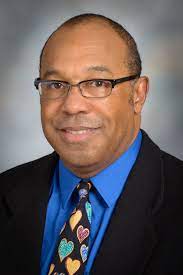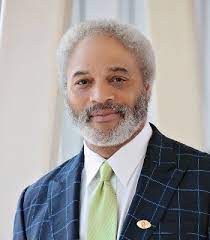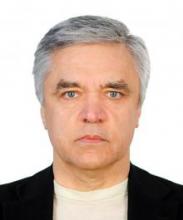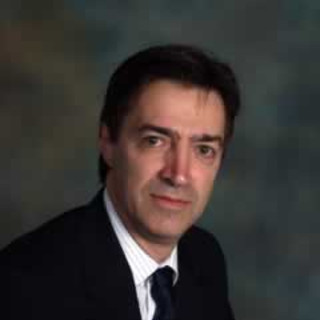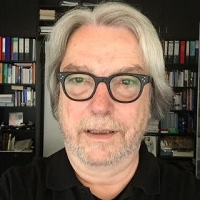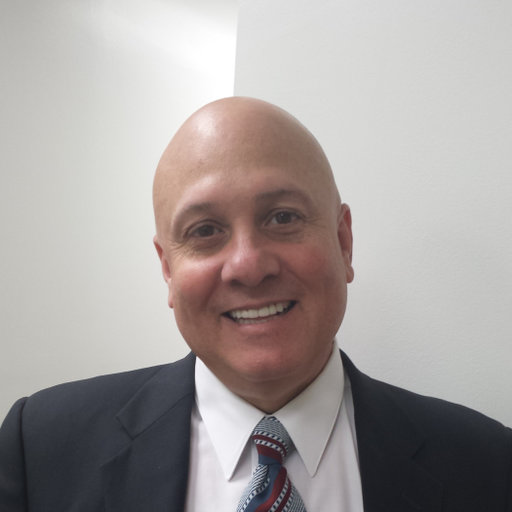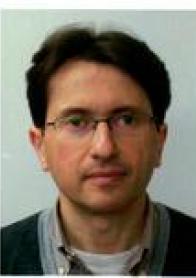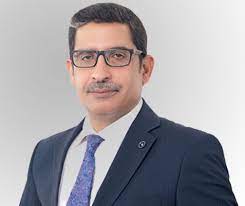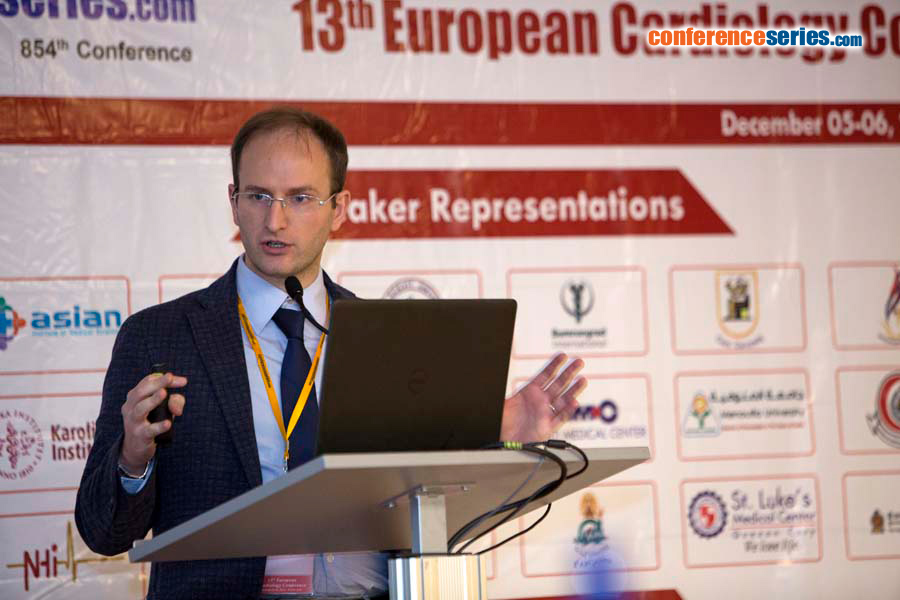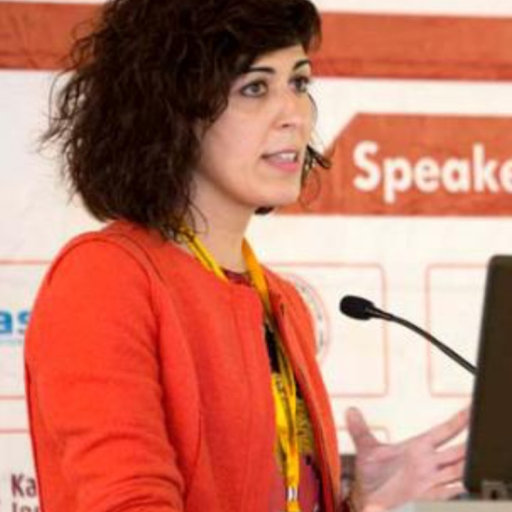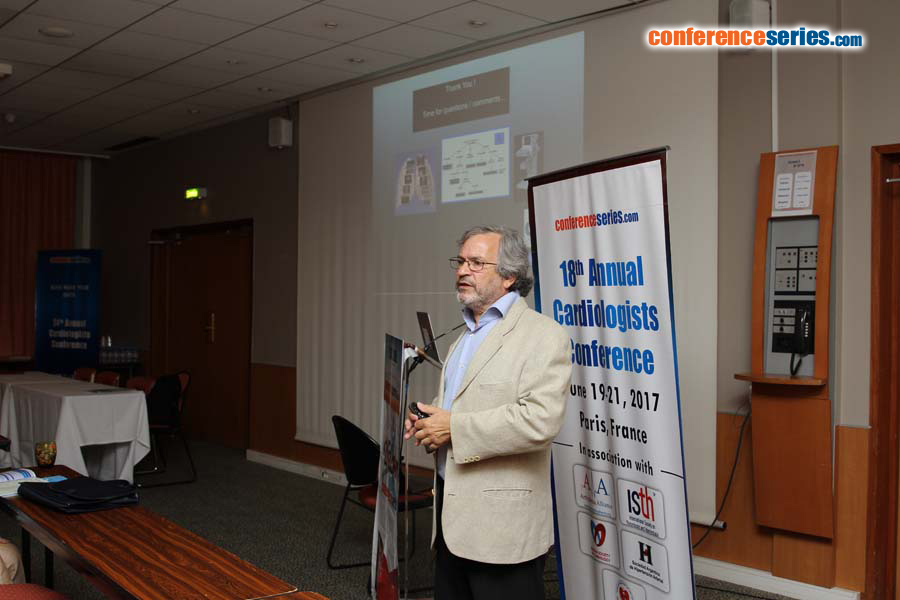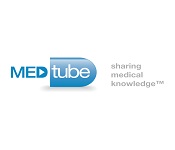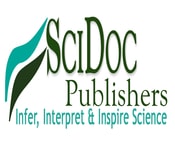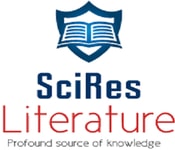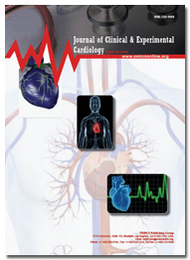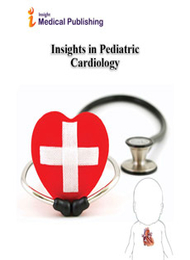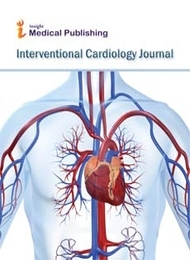Theme: “Exploring the New Heights of Excellence in Cardiology and Cardiac Careâ€
Cardiology Meet 2022
With immense pride and pleasure, we cordially welcome participants from all over the globe to our “33rd International Conference on Cardiology and Heart Failure” which is scheduled on November 22-23, 2022 | Webinar. Cardiology Meet 2022 plans to assemble professors, scientists and researchers related to Cardiology and Cardio Care research.
It’s with great pleasure and honour to invite you to the 33rd International Conference on Cardiology and Heart Failure which is going to be held during November 22-23, 2022 | Webinar
This conference will be organised with the theme “Exploring the New Heights of Excellence in Cardiology and Cardiac Care” Cardiology Meet 2022 is a platform providing to share their state of art, exchange and ideas, views, experiences, research and technologies of scientists which would cover the most important sessions of Cardiology and Cardiac Care.
Cardiology Conference strives to bring renowned Cardiologists, Cardiovascular online visitors ranging from Researchers, Academicians and Business professionals, who are working in this field, students and Business delegates under a single roof providing an opportunity to share the knowledge and scientific progress in the field of Cardiology and Cardiac Care shaping the future research.
Meet the Global Inspiring Experts and Speakers at our Cardiology Meet 2022 to discuss on related research for the supportive and sketching out to update the flourishing treatment and advanced changes and new advancements in the field of Cardiology. The journals are going about as feasible outlets for various researchers including specialists, understudies and aces and different acclaimed individuals from the related gathering.
This conference emphasizes the meeting of minds with great interest towards Cardiology and Cardio Care. This is an incredible opportunity to communicate with the world-class Scientists for the representatives from Universities and Institutes. The intending participants can affirm their support by enlisting for the meeting next to your partners.
We have the pleasure to welcome you to our enliven gathering. Let’s meet with a champion amongst the most splendid urban gatherings on the planet. We promise you for gaining a brilliant academic knowledge on Cardiology and Cardiac Care from our conference.
Why to Attend Cardiology Meet 2022?
Cardiology Meet 2022 highlights the theme “Exploring the new heights of excellence in Cardiology and Cardiac Care” with members from around the world focused on learning about Cardiology and its advances in innovation of Clinical Healthcare Systems, Hospitals and Research Organizations.This is the best opportunity to reach the huge assemblage of participants from the cardiology community to participate in paper presentations, attending sessions of presentations and debates, workshops and symposiums as well as poster presentations. This conference on Cardiology and Heart Failure will deal with various tracks from the different fields of Cardiology. This provides you with a unique opportunity to meet up with both industry and academic professionals. This is a wonderful opportunity to share knowledge, expertise along with unparalleled networking opportunities and the newest updates between a large number of medical and industrial professionals in this sphere.
Cardiology Meet 2022 gathers all the extroverts under one roof of current advances.
Who should attend?
- Directors
- Cardiologists
- Cardiac Surgeons
- Cardio-thoracic Surgeons
- Cardiac Nurses
- Cardiology Associations and Societies
- Business Professionals
- Medical colleges and universities
- Professors
- Manufacturing Medical Devices Companies
- Students
For Researchers & Faculty:
For Universities, Associations & Societies:
- Association Partnering
- Collaboration proposals
- Academic Partnering
- Group Participation
For Students & Research Scholars:
- Poster Competition (Winner will get Best Poster Award)
- Young Researcher Forum (YRF Award to the best presenter)
- Student Attendee
- Group registrations
For Business Delegates:
- Speaker Presentations
- Symposium hosting
- Book Launch event
- Networking opportunities
- Audience participation
For Companies:
- Exhibitor and Vendor booth
- Sponsorships opportunities
- Product launch
- Workshop organizing
- Scientific Partnering
- Marketing and Networking with clients
Young Scientist Benefits:
- Our conferences provide best Platform for your research through oral presentations.
- Share the ideas with both eminent researchers and mentors.
- Young Scientist Award reorganization certificate and memento to the winners
- Young Scientists will get appropriate and timely information by this Forum.
- Platform for collaboration among young researchers for better development
- Award should motivate participants to strive to realize their full potential which could in turn be beneficial to the field as whole.
For Scientific Sessions please go through the link:
https://cardiologycongress.cardiologymeeting.com/call-for-abstracts.php
For Abstract Submission please go through the link:
https://cardiologycongress.cardiologymeeting.com/abstract-submission.php
Track 1: Cardiovascular Disease
Cardiovascular disease (CVD) is a leading cause of death in many affluent countries and is still one of the most diet-related disorders. Nutrition may have a direct impact on CVD by contributing to the formation of vascular plaques and indirectly by influencing the ageing process. Because global consumption of ultra-processed foods has risen significantly, research must establish that higher consumption of ultra-processed foods is linked to an increased risk of cardiovascular, coronary heart, and cerebrovascular illnesses. A recent study indicated that eating more plant-based meals lowers the chance of heart failure by 40%, while another found that adopting a vegetarian diet lowers the risk of dying from heart disease.
• Dietary Cholesterol Intake
• Obesity and Cardiovascular Disease
• Cardiac-gated imaging modalities
• Dietary Atherosclerosis and Hypertension
• Nutrients and their Impact on Cardiovascular Disease
Cardiology Conferences 2022 | Cardiology Meetings | Cardiovascular Conference | Cardiology World Congress | Cardiology Meet 2022 | World congress of cardiology | Cardiac conferences | Cardiology Events
Track 2: Acute Coronary Syndromes
Acute coronary syndromes (ACS)is a disorder caused by acute myocardial ischemia, ranging from unstable angina (increasing, unpredictable chest pain) to myocardial infarction (heart attack) (heart attack). The diseases are caused by variable degrees of constriction or blockage of single or many coronary arteries, which supply the heart with blood, oxygen, and nutrients. This life-threatening condition is a common reason for ER visits and hospitalization. In the United States, coronary artery disease (CAD) is still the largest cause of mortality.
- Chest pain—uncomfortable pressure, squeezing, or fullness
- Upper body discomfort—pain or discomfort in both arms, the back, neck, jaw, or abdomen
- Exercise on a regular basis
- Eat a healthful diet
- Maintain a reasonable body weight
Cardiology Conferences 2022 | Cardiology Meetings | Cardiovascular Conference | Cardiology World Congress | Cardiology Meet 2022 | World congress of cardiology | Cardiac conferences | Cardiology Events
Track 3: Hypertension
The only significant risk factor for stroke is hypertension. Almost half of all ischemic and hemorrhagic strokes, as well as cerebral strokes, are caused. The consequences of hypertension are sometimes not recognized until significant damage to the body's blood vessels has occurred.
Increased cardiovascular risk is associated with elevated systolic pressure in people over 60 years old and elevated diastolic pressure in younger people.
• Aneurysm of the kidney artery
• Isolated systolic hypertension
• Dementia
• Sudden cardiac death in sports
• Improving ECG interpretation in athletes
Cardiology Conferences 2022 | Cardiology Meetings | Cardiovascular Conference | Cardiology World Congress | Cardiology Meet 2022 | World congress of cardiology | Cardiac conferences | Cardiology Events
Track 4: Atherosclerosis
Atherosclerosis is the gradual hardening of your arteries caused by plaque accumulation. High cholesterol, high blood pressure, diabetes, smoking, obesity, lack of exercise, and a saturated fat-rich diet are all risk factors. Atherosclerosis develops gradually and may not manifest symptoms until complications such as a heart attack or stroke occur.
- Blood clots.
- Carotid artery disease.
- Chronic kidney disease.
- Coronary artery disease.
- Heart attack.
Cardiology Conferences 2022 | Cardiology Meetings | Cardiovascular Conference | Cardiology World Congress | Cardiology Meet 2022 | World congress of cardiology | Cardiac conferences | Cardiology Events
Track 5: Arrhythmias
An erratic heartbeat is known as a cardiac arrhythmia. When the electrical signals that coordinate the heart's beats don't work properly, heart rhythm disorders emerge. The heart beats too rapidly (tachycardia), too slowly (Bradycardia), or irregularly due to improper signaling. Heart arrhythmias can cause a fluttering or racing sensation in the chest and are usually harmless. Some heart rhythms, on the other hand, can create uncomfortable, even life-threatening, signs and symptoms. To manage or eradicate fast, slow, or irregular heartbeats, medicines, catheter procedures, implanted devices, or surgery may be used. A heart-healthy lifestyle can aid in the prevention of cardiac damage that can lead to arrhythmias.
- Tachycardia
- Bradycardia
- Supraventricular arrhythmias
- Ventricular arrhythmias
- Bradyarrhythmias
Cardiology Conferences 2022 | Cardiology Meetings | Cardiovascular Conference | Cardiology World Congress | Cardiology Meet 2022 | World congress of cardiology | Cardiac conferences | Cardiology Events
Track 6: Coronary Angiography
A coronary angiography is a test that determines whether or not a coronary artery is blocked. Coronary angiography and heart catheterization are essential procedures for detecting and quantifying coronary artery disease, identifying valvular and other structural anomalies, and measuring hemodynamic parameters. The risks and consequences connected with these treatments are related to the patient's underlying diseases as well as the operator's expertise and discretion.
Cardiovascular Angiography Indications:
- Aortic aneurysm and dissection in the thoracic and abdominal arteries
- Coronary artery disease diagnosis and therapy
- Aneurysms of the coronary arteries
- Intermittent claudication and limb-threatening ischemia are symptoms of peripheral vascular disease.
- Malformations of the blood vessels
Cardiology Conferences 2022 | Cardiology Meetings | Cardiovascular Conference | Cardiology World Congress | Cardiology Meet 2022 | World congress of cardiology | Cardiac conferences | Cardiology Events
Track 7: Cardiomyopathy
Cardiomyopathy is a heart illness that affects the heart muscle, and some of the most common symptoms are shortness of breath, fatigue, and leg edema due to heart failure. Hypertrophic cardiomyopathy, dilated cardiomyopathy, restricted cardiomyopathy, arrhythmogenic right ventricular dysplasia, and takotsubo cardiomyopathy, often known as broken heart syndrome, are the many kinds of cardiomyopathy.Hypertrophic cardiomyopathy is a genetic condition in which the heart muscle thickens and enlarges, whereas dilated cardiomyopathy causes the ventricles to weaken and enlarge. Frequently, the cause is unknown. Alcohol, heavy metals, cocaine usage, and viral infections can all cause dilated cardiomyopathy. The ventricles stiffen in restrictive cardiomyopathy, which can be induced by amyloidosis, hemochromatosis, and various cancer treatments.
- Chronic rapid heart rate
- Connective tissue disorders
- Certain infections, especially that inflame the heart
- Heart tissue damage from heart attack
- Cardio myocyte proliferation
Cardiology Conferences 2022 | Cardiology Meetings | Cardiovascular Conference | Cardiology World Congress | Cardiology Meet 2022 | World congress of cardiology | Cardiac conferences | Cardiology Events
Track 8: Cardiac Regeneration
Cardiac regeneration is a massive endeavor that aims to use cutting-edge research, such as cell-free and stem cell therapy, to restore damaged heart tissue. Some natural reparative methods have been established to rejuvenate damaged heart tissues and their function by the body. Patients and clinicians can work together to identify regenerative solutions that restore their own ability to heal.
- Cardiomyocytes proliferation
- Angiogenesis
- Transcription
- Tissue engineering
- Cardiac regeneration therapy
Cardiology Conferences 2022 | Cardiology Meetings | Cardiovascular Conference | Cardiology World Congress | Cardiology Meet 2022 | World congress of cardiology | Cardiac conferences | Cardiology Events
Track 9: Cardiovascular Engineering
Cardiovascular engineering is a multidisciplinary field whose goal is to better understand cardiovascular disease and offer more therapeutic approaches. It covers a wide range of issues linked to the cardiovascular system, including its function, illness causes, and the factors that contribute to it, as well as their treatment. The development of diagnostic procedures, medicines, and biomedical tools, all of which have a substantial impact on the care of patients with cardiovascular disorders, is a major focus of cardiovascular engineering research.
- Biomedical computational technologies
- Biomedical nanoscale systems
- Bimolecular/genetic engineering
- Bio photonics
- Neuroengineering
Cardiology Conferences 2022 | Cardiology Meetings | Cardiovascular Conference | Cardiology World Congress | Cardiology Meet 2022 | World congress of cardiology | Cardiac conferences | Cardiology Events
Track10: Robotic Heart Surgery
Robotic heart surgery is a minimally invasive technique to heart surgery that employs robotic devices, small cameras, and precision instruments to gain access to the heart without requiring a major incision or a cut through the breastbone. Traditional cardiac surgery necessitates surgeons opening into the chest to have access to the heart. This method necessitates a huge incision and causes a lot of unintentional harm to the chest by cutting through the breast bone and opening up the rib cage. Surgeons don't have to cut through the breast bone when using a robotic technique. Instead, we use small incisions between the ribs to insert tools. This lowers the danger of infections and blood loss after surgery, decreases scarring, necessitates shorter hospital stays, and allows for a much speedier return to normal daily activities. Because they are not recovering, patients also experience significantly less discomfort during their rehabilitation.
- Mitral valve repair
- Mitral valve replacement
- MAZE procedure (ablation procedure to treat atrial fibrillation)
- Atrial septal defect closure
- Removal of cardiac tumors (such as atrial myoxoma)
Cardiology Conferences 2022 | Cardiology Meetings | Cardiovascular Conference | Cardiology World Congress | Cardiology Meet 2022 | World congress of cardiology | Cardiac conferences | Cardiology Events
Track 11: Implantable cardioverter-defibrillator (icd)
A small battery-powered device called an implantable cardioverter-defibrillator (ICD) is implanted in your chest to detect and stop irregular heartbeats (arrhythmias). An ICD continuously monitors your heartbeat and, if necessary, administers electric shocks to restore normal cardiac rhythm.
- Long QT syndrome
- Brugada syndrome
- A congenital heart disease or other underlying conditions for sudden cardiac arrest
- When your heartbeat is too fast or chaotic, it gives defibrillation shocks to stop the abnormal rhythm.
- It works 24 hours a day.
Cardiology Conferences 2022 | Cardiology Meetings | Cardiovascular Conference | Cardiology World Congress | Cardiology Meet 2022 | World congress of cardiology | Cardiac conferences | Cardiology Events
Track 12: Echocardiography
The cardiac echo created by ultrasound waves creates images of the heart, which is referred to as echocardiography. This is a sort of ultrasound test in which high-pitched sound waves are transmitted through a transducer. The equipment picks up the echoes of sound waves when they interact with various sections of your heart. These echoes produce moving images of your heart that can be viewed on a television screen. It aids in the detection of cardiomyopathies such as hypertrophic and dilated cardiomyopathies, among others.
- Cardiac-gated imaging techniques
- Myocardial perfusion imaging
- Cardiac magnetic resonance imaging (MRI)
- Chest X-ray
- Three-dimensional echocardiography
Cardiology Conferences 2022 | Cardiology Meetings | Cardiovascular Conference | Cardiology World Congress | Cardiology Meet 2022 | World congress of cardiology | Cardiac conferences | Cardiology Events
Track 13: Cardiac Auto Immune Diseases
Autoimmune diseases (AD) are a group of chronic illnesses that affect one or more organs or systems and have a major impact on one's quality of life. Genetic and epigenetic variables, gender discrepancy, environmental triggers, pathophysiological anomalies, and particular sub phenotypes are all common processes in these diseases. Atherosclerosis (AT) was once thought to be a degenerative illness that came with the passage of time. However, research conducted over the previous three decades has revealed that AT is neither degenerative nor unavoidable. It's an autoimmune-inflammatory illness linked to viral and inflammatory causes, defined by changes in lipoprotein metabolism that trigger immune system activation, resulting in smooth muscle cell proliferation, constriction of arteries, and atheroma formation. It's been suggested that both humoral and cellular immunological processes have a role in the onset and progression of AT. A number of risk variables, referred to as traditional risk factors, have been identified.
- Rheumatic heart disease:
- Pericarditis
- Myocarditis
- Endocarditis
- Coronary artery disease:
Cardiology Conferences 2022 | Cardiology Meetings | Cardiovascular Conference | Cardiology World Congress | Cardiology Meet 2022 | World congress of cardiology | Cardiac conferences | Cardiology Events
Track 14: Digital Cardiology
Cardiovascular diseases (CVD) are the main cause of death worldwide, killing 18 million people each year. Disease prevention is an important part of reducing CVD morbidity and mortality around the world, and developments in digital health technologies may make it easier to stick to and use preventative strategies. In the discipline of cardiology, promising digital health solutions have arisen. In the field of diagnostics, AliveCor has demonstrated the ability to collect real-time electrocardiograms via smartphones, while the Apple Watch has proven to be effective in detecting atrial fibrillation. In terms of treatment, the Corrie Health Digital Platform may be able to provide remote cardiac rehabilitation and secondary prevention to myocardial infarction patients. Emerging technologies like virtual reality, artificial intelligence, and machine learning show that digital cardiology has even more room to grow and become more clinically relevant. In the fight against CVD, digital health technologies are becoming increasingly popular.
Cardiology Conferences 2022 | Cardiology Meetings | Cardiovascular Conference | Cardiology World Congress | Cardiology Meet 2022 | World congress of cardiology | Cardiac conferences | Cardiology Events
Track 15: Stem Cell Research and Regeneration on Cardiology
Ischemic heart disease is the most common cause of death in the world. Myocardial infarction causes irreversible cardiomyocyte loss, which leads to heart failure and unfavorable remodeling. An objective of cardiac biology and regenerative medicine is to find fresh sources of cardiomyocytes and promote their development. Many types of putative cardiac stem cells (CSCs) have been identified to heal the wounded heart by differentiating into new cardiomyocytes within the last decade. Some of these CSCs have been successfully transferred from the bench to the bedside, with promising therapeutic results. Recent basic research investigations on stem cell tracing, on the other hand, have begun to cast doubt on their fundamental biology and mechanisms of action, raising major doubts about CSCs' myogenic potential. We examine the evolution of different types of CSCs over the last decade and provide an update on recent cell tracing research that have cast doubt on CSCs' origins and existence. Aside from the potential role.
Cardiology Conferences 2022 | Cardiology Meetings | Cardiovascular Conference | Cardiology World Congress | Cardiology Meet 2022 | World congress of cardiology | Cardiac conferences | Cardiology Events
Track 16: Sports and Exercise Cardiology
Sport and exercise cardiology is a branch of medicine related to the exercising individuals and cardiovascular care of athletes which deals with physical fitness and the treatment, prevention of injuries related to sports and exercise by advancing the knowledge through clinical expertise and research. In short term, the risk of adverse events can be associated with the exercise instead of overcoming the favourable long-term effects on well-being. Various problems can be arising for the cardiologists in evaluating the athletes due to adaptations imposed by exercise.
Cardiology Conferences 2022 | Cardiology Meetings | Cardiovascular Conference | Cardiology World Congress | Cardiology Meet 2022 | World congress of cardiology | Cardiac conferences | Cardiology Events
Track 17 : Interventional Cardiology
Interventional cardiology is a subspecialty of cardiology that deals with non-surgical treatments for treating cardiovascular problems and uses Cather based approaches to treat various structural heart abnormalities. A small, flexible tube called a catheter is frequently used to repair damaged arteries or other heart structural disorders to eliminate the need for surgery. Furthermore, for an acute myocardial infarction, the interventional cardiology procedure serves as the gold standard of care. It entails removing clogs from coronary arteries and inserting stents and balloons through a tiny hole drilled into a main artery. Coronary intervention will continue to be the most common operation performed by interventional cardiologists, resulting in the development of new techniques proportional to population growth in the future decade. Interventional cardiology is predicted to get increased attention as the field of valvular heart disease intervention expands.
- Procedures in cardiothoracic surgery
- Catheterization of the heart
- Interventions in the coronary and valvular systems
Cardiology Conferences 2022 | Cardiology Meetings | Cardiovascular Conference | Cardiology World Congress | Cardiology Meet 2022 | World congress of cardiology | Cardiac conferences | Cardiology Events
Track 18: Cardiac Devices
Pacemakers, implantable cardioverter defibrillators (ICDs), biventricular pacemakers, and cardiac loop recorders are examples of cardiac implantable electronic devices that are used to control or monitor irregular heartbeats in persons with specific heart rhythm problems and heart failure. Cardiac devices are used to treat irregular heartbeats and heart rhythm abnormalities that are caused by the heart's electrical system. An implanted device may be advised if medicine, lifestyle changes, or other treatments do not work. Long-term use of cardiac devices may be beneficial for some heart problems.
Cardiology Conferences 2022 | Cardiology Meetings | Cardiovascular Conference | Cardiology World Congress | Cardiology Meet 2022 | World congress of cardiology | Cardiac conferences | Cardiology Events
Track 19 : Cardiac Nursing
Cardiac nursing is a subset of nursing that focuses on individuals with specific cardiovascular problems. Under the supervision of a cardiologist, cardiac nurses assist in the treatment and management of disorders such as unstable angina, cardiomyopathy, Coronary Artery Disease, Congestive Heart Failure, myocardial infarction, and cardiac arrhythmia. Cardiac nurses are responsible for post-operative care on surgical units, stress test evaluations, cardiac monitoring, vascular monitoring, and health assessments.
Cardiac Nursing Types:
• Paediatric cardiac nursing
• Cardiovascular nursing
• Cardiovascular nursing
• Cardiac assessment nursing
Cardiology Conferences 2022 | Cardiology Meetings | Cardiovascular Conference | Cardiology World Congress | Cardiology Meet 2022 | World congress of cardiology | Cardiac conferences | Cardiology Events
The global market for cardiovascular devices reached nearly $42.4 billion in 2017 and estimated to reach $59.1 billion by 2022, at a compound annual growth rate (CAGR) of 6.9% for the period of 2017-2022. The market for cardiac biomarkers is estimated to reach $7.2 billion by 2018, at a compound annual growth rate (CAGR) of 12.8% from 2013 to 2018.
The number of cardiac procedures performed increased steadily over the five years to 2017, providing overwhelming demand for operators in the Cardiologists industry. In particular, the growing burden of cardiovascular disease fostered increased demand. In addition, increasing rates of obesity and an aging baby-boomer population have resulted in an uptick in heart-related conditions. As a result, the early onset of chronic health conditions, such as heart disease, hypertension and diabetes, bolstered demand for industry services. Improving economic conditions through 2022 are expected to underpin steady growth for cardiologists, though profit pressures will encourage consolidation in the industry.
Major societies for Heart and Cardiology in Globally:
- Kensington and Chelsea College
- University College London
- King's College London
- Royal Veterinary College
- Imperial College School of Medicine
- St George's, University of London
- St Mary's Hospital Medical School
- Goldsmiths, University of London
Top hospitals for Heart and Cardiology:
- University College Hospital at Westmoreland Street
- Royal Brompton Hospital
- London Bridge Hospital
- St Bartholomew's Hospital
- Hare field Hospital
- University College Hospital
- London Bridge Hospital
- St. Mark's Hospital
- The London Heart Surgery Group Within London Bridge Hospital
- Cleveland Clinic, Ohio
- Mayo Clinic, Rochester
- New York-Presbyterian University Hospital of Columbia and Cornell, New York
- Duke University Hospital, Durham
- Brigham and Women's Hospital, Boston
- Massachusetts General Hospital, Boston
- Hospitals of the University of Pennsylvania-Penn Presbyterian, Philadelphia
- Cedars-Sinai Medical Centre, Los Angeles
- St Francis Hospital, Roslyn, New York
- Mount Sinai Hospital, New York
Products manufactured by the industry related to Cardiology research globally:
- Pacemakers
- Implantable defibrillators Stents
- Remote Patient Management
- Vascular/Surgical Devices
- Small Molecules
- Heart valve corrective device
- Stents
- Specialized medicines
- Medical Diagnostic Instruments
- Single-use cardiovascular medical devices
Conference Highlights
- Acute Coronary Syndromes
- Cardiovascular Engineering
- Hypertension
- Atherosclerosis
- Arrhythmias
- Coronary Angiography
- Cardiomyopathy
- Cardiac Regeneration
- Echocardiography
- Robotic Heart Surgery
- Implantable cardioverter-defibrillator (icd)
- Cardiac Auto Immune Diseases
- Digital Cardiology
- Stem Cell Research and Regeneration on Cardiology
- Sports and Exercise Cardiology
- Interventional Cardiology
- Cardiac Auto Immune Diseases
- Cardiac Devices
- Cardiac Nursing
- Cardiovascular Disease
- Cardiac Surgery & Percutaneous Cardiovascular Interventions
To share your views and research, please click here to register for the Conference.
To Collaborate Scientific Professionals around the World
| Conference Date | November 22-23, 2022 | ||
| Sponsors & Exhibitors |
|
||
| Speaker Opportunity Closed | |||
| Poster Opportunity Closed | Click Here to View | ||
Useful Links
Special Issues
All accepted abstracts will be published in respective Our International Journals.
- Journal of Clinical and Experimental Cardiology
- Interventional Cardiology Journal
- Insights in Pediatric Cardiology
Abstracts will be provided with Digital Object Identifier by




